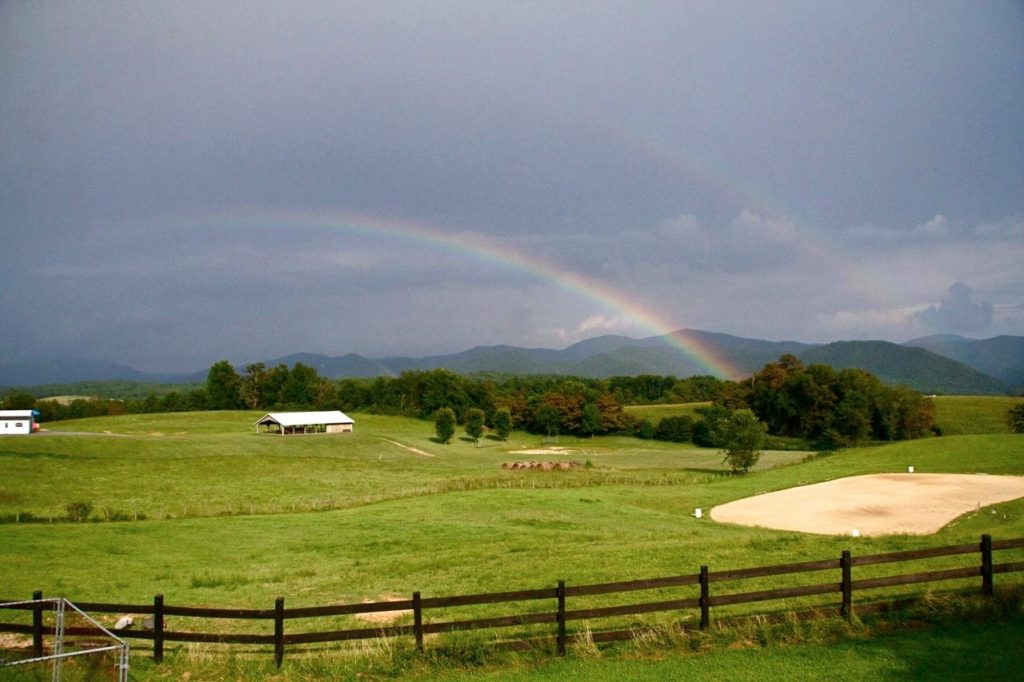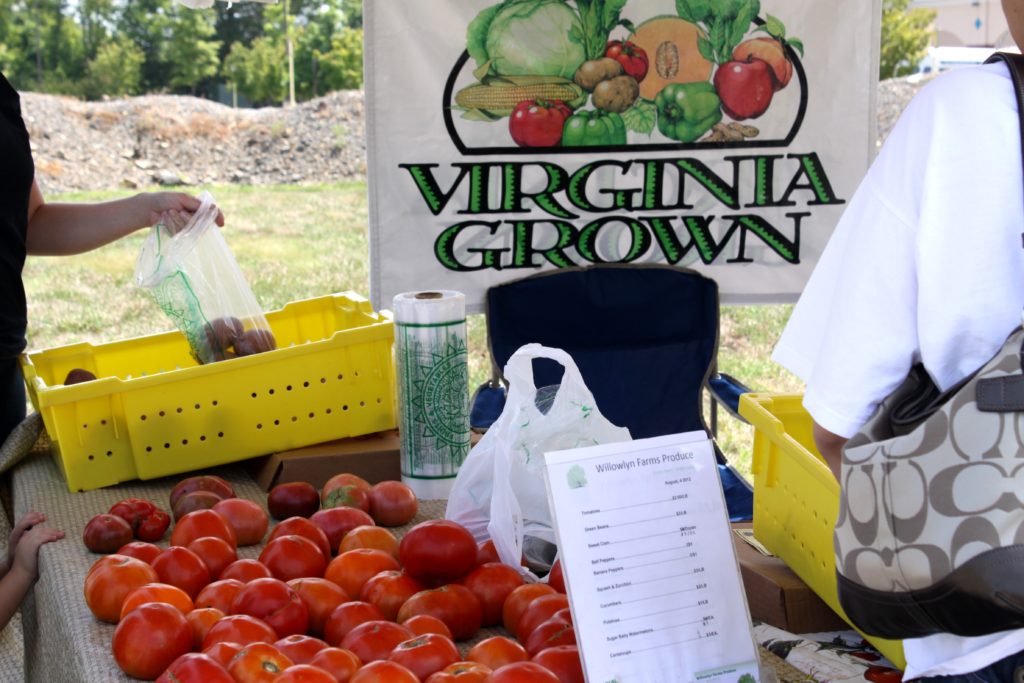How to start homesteading in Virginia
Virginia’s state slogan may be that the mid-Atlantic commonwealth is for lovers, but is it for farmers and homesteaders, too?

Agriculture is still a booming business in Virginia. It is the state’s largest private industry, employing nearly 54,000 farmers and generating approximately $3.8 billion in total output. The state’s proximity to major metropolitan areas has also promoted the rise of agritourism and value-added agribusiness in the state. The agricultural industry in Virginia has one of the most diverse outputs in the country.
Still, like many states, the number of small to mid-sized farms are declining in Virginia, and it may be difficult to get started among the established local competitors. If you are considering how to start homesteading in Virginia, here’s what you need to know.
Buying farmland in Virginia
According to 2019 data from the United States Department of Agriculture (USDA), the average cost of farm real estate in Virginia was $4,650 per acre, compared to the national average of $3,160 that same year. According to the USDA’s 2018 State Agriculture Overview, Virginia has 7.8 million acres of farmland and 42,500 farms, and the average farm size is 184 acres.
Farms must register as a business with the Virginia state government. If the business structure is too complicated for the online system, or if you are starting a non-profit organization, the forms must be filled out and filed manually with the State Corporation Commission. Individual cities, counties or towns may also require a local business license or zoning permits for new farms, so contact your local Commissioner of Revenue, Zoning Office or Department of Finance to determine area requirements.
Virginia offers Agribusiness Grants to promote agricultural diversification in the tobacco region of the state to reduce dependence on tobacco and tobacco-related business. The state is also committed to preserving its remaining farmland. In 2001, the Virginia General Assembly established the Office of Farmland Preservation within the Virginia Department of Agriculture and Consumer Services (VDACS). VDACS also works directly with farmers to improve their operations through its Agricultural Stewardship Program.
Farms with good water quality practices may also qualify for Virginia’s Department of Conservation and Recreation’s Agricultural Best Management Practices Cost-Share Program, which supports the use of various practices in conservation planning to treat cropland, pastureland, hay land and forested land by paying qualifying farmers a flat or per-acre rate. The program can reduce the landowner‘s expense to less than 30 percent of the total cost of operating the farm.

Growing crops in Virginia
Virginia’s hardiness zones range from 5 to 8, with average minimum temperatures between -10 degrees Fahrenheit to 10 degrees Fahrenheit. Though the majority of the state is in zones 6 and 7, a small area of the highest mountain regions fall into the slightly chillier zone 5, while some areas around Norfolk and the Chesapeake Bay fall into zone 8 with higher minimum temperatures.
Virginia produce farmers grow and sell a wide variety of fruits and vegetables. Profitable crops that grow well in Virginia include cabbage, cucumbers, string beans, sweet corn, tomatoes, sweet potatoes, potatoes, watermelons and peaches. Apples are grown primarily in the Shenandoah Valley, where warm days, cool nights, consistent rainfall and rich soil create ideal conditions for growing a wide variety of apples. The state’s farmers also produce a large quantity of grapes, but most are sold for wine.
Virginia soils are enriched by the complex river system running from the western mountains eastwards throughout the state. Pamunkey soil, the official state soil, is prevalent throughout the western and central counties of Virginia around the James River, but the areas around rivers in Virginia boast the state’s most productive agricultural soil regardless of location.
The soil in the eastern coastal plain of Virginia is dense and sandy, which can make it difficult to farm. The soil in central and far eastern region of the state can also be exceptionally acidic, making for challenging growing conditions.
In general, northwest Virginia is considered the state’s best area for agriculture because of the rich soil and the proximity to metropolitan markets (though the western border is unsuited for farming due to the mountainous slopes).
Raising animals in Virginia
According to Virginia’s state fence laws, it is unlawful to permit livestock to run at large. The owner of the animal is liable for damage caused by livestock on another property. Whenever livestock is found trespassing upon any such enclosed ground, the owner or tenant of such enclosed grounds shall have the right to take up such animal and impound the same until the damages provided for by the preceding sections shall have been paid.
Unless they are slated for immediate slaughter, all livestock entering Virginia must bear official identification and the official identification number must be noted on the Certificate of Veterinary Inspection.
Hatching eggs and day-old poultry imported into Virginia must originate exclusively from flocks or hatcheries participating in the National Poultry Improvement Plan (NPIP) that are certified clean of avian influenza.
All other poultry must be NPIP certified or test negative for Pullorum-typhoid within 30 days prior to entry. Adult poultry must be tested for avian influenza within 14 days of movement into Virginia regardless of NPIP status.
No goat or sheep infected with scrapie, or the offspring of a goat or sheep infected with scrapie, may enter Virginia. If you are planning to ship cattle, goats, sheep or other ruminants like alpacas or llamas to Virginia from a tuberculosis or brucellosis positive area, additional testing requirements apply. Similarly, swine originating from a region not considered free of brucellosis or pseudorabies, or swine that are or have had known contact with free roaming swine, may require additional testing.
All horses entering Virginia must be officially tested and found negative for equine infectious anemia within the past year and be accompanied by an official test certificate. Beginning on June 1, 2019, accredited veterinarians responsible for certifying the health status of cattle, bison and other bovines being shipped to the Commonwealth of Virginia also must have an entry permit.
There are several weekly livestock auctions listed on the VDACS website that are held in different counties throughout the state. The Farmers Livestock Exchange in Winchester hosts regular Monday livestock auctions specializing in feeder cattle, but also including lambs, goats, swine and occasional thoroughbred horse sales.

Selling food in Virginia
There are 153 farmers’ markets listed on the Virginia Farmers Market Directory website.
Farms that made on average more than $25,000 in the previous three years must comply with the Food and Drug Administration’s Produce Safety Rule, which cover the farm’s water quality, management of farm animals, soil amendments and worker training. However, farms that fall below the monetary threshold for coverage are not subject to the Produce Safety Rule, and farms that average less than $500,000 in food sales per year during the previous three years may be eligible for modified requirements as well. This exemption is commonly called the Tester-Hagan Amendment and provides for a lesser regulatory burden to smaller farms that sell directly to a local market.
If you are only growing produce — fresh fruits and vegetables, not including sprouts — then you are not required to pay Virginia’s annual food safety fee of $40. Farms that grow sprouts for distribution to restaurants or retail stores are classified as food manufacturers and are required to be under inspection and therefore must pay the annual food safety fee.
Virginia Food Law requires that kitchen, food processing and storage areas be inspected by the VDACS Food Safety Program office prior to starting a food operation. An inspection of the operation will not be conducted until all of the necessary information requested in the application has been reviewed, including written documentation of approval from your local zoning office, a diagram or food processing and storage areas, water test results and a list of products you plan to make.
If your proposal involves acidified foods, including pickled products, salsa, pumpkin butter, barbecue sauces, relishes and hot sauce, or products containing garlic in oil, your process must be evaluated by a competent processing authority and a copy of the evaluation letter furnished with your application.
All packaged foods must be properly labeled with the product name, net weight, ingredients, name and address of the manufacturer, distributor or packer. When one of the eight major food allergens is an ingredient or sub-ingredient, it must be identified by name, either within the ingredient statement or in a separate statement directly below the ingredient statement.
If you are applying to make and sell low-risk processed foods from your home kitchen, may be exempt from including a nutrition facts panel on your label, though these product containers should still have all other labeling information, as well as the statement “NOT FOR RESALE – PROCESSED AND PREPARED WITHOUT STATE INSPECTION” on the front of the product.
In order to qualify as a small business that is exempt from including a nutrition facts panel, you must have less than 10 full-time employees and sell less than 10,000 units of product in one year. Also, you may not have claims on the label if a nutrition facts panel is not present, like “low fat”, “no added sugar”, “healthy” or “high in fiber.” Low-risk home processed foods that qualify for this exemption include candies, dried pastas, vinegars, roasted coffee, cereal, dried herbs and baked goods that do not require temperature control.
Eggs should be labeled with the product name (note that the term “fresh eggs” can only be used if the product meets the requirements for Grade A or higher), safe handling instructions, the name and address of the packer and the grade or “ungraded” if the product has not been inspected. Eggs are exempt from Virginia Egg Law and do not need inspection if selling less than 150 dozen of your own eggs per week or less than 60 dozen of another producer’s eggs per week.
Eggs must be clean and held at 45 degrees Fahrenheit or lower at all times. The Virginia Cooperative Extension guide to selling at markets notes that reusing egg cartons runs the risk of contamination, so it suggests asking patrons to bring their own cartons.
Virginia organizations for new farmers
- The Virginia Beginning Farmer and Rancher Coalition
- Young Farmers of Virginia
- Virginia Farm Link
- Virginia Farm Bureau Federation
- Virginia Agribusiness Council
- Virginia Farmers Market Association
- Virginia Foundation for Agriculture, Innovation and Rural Sustainability
- Virginia Association for Biological Farming
- Virginia Cooperative Extension (particularly the Small Farm Outreach Program)
How difficult is it to start homesteading in Virginia?
When compared to other states, agriculture is a large, well-supported industry in Virginia. It may be difficult for small farmers to break into the market, but the state has resources available for new farmers or homesteaders looking to get started in agribusiness.
